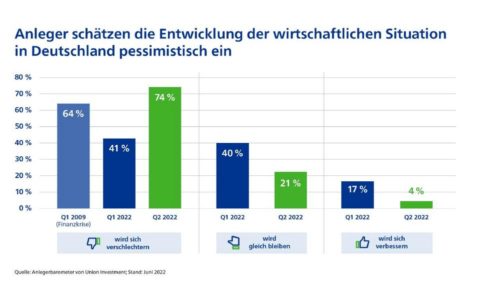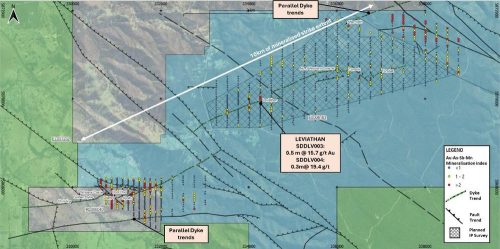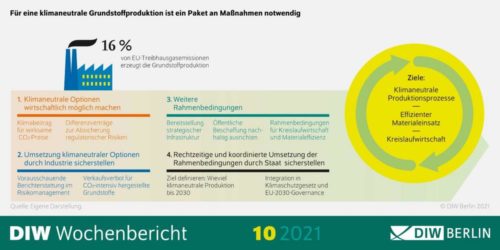Group: Strong performance in Q4 2020 due to higher volumes and prices
- Proposed dividend of €3.30 per share for the 2020 business year (2019: €3.30 per share)
- Bonus for employees as a sign of recognition and appreciation
Outlook 2021:
- Sales growth to between €61 billion and €64 billion (2020: €59.1 billion)
- EBIT before special items of between €4.1 billion and €5.0 billion (2020: €3.6 billion)
“In a challenging 2020 business year, BASF was able to close out the year on a strong note,” said BASF’s Chairman of the Board of Executive Directors, Dr. Martin Brudermüller, at the presentation of the BASF Report 2020. Income from operations (EBIT) before special items for the full year 2020 exceeded the company’s forecast released in October and beat the analysts’ consensus. BASF had therefore released its preliminary figures already on January 20, 2021.
“We increased volumes in all regions in the fourth quarter of 2020,” said Brudermüller. “In Greater China, we continued to see double-digit volumes growth. Sales volumes rose in almost all segments in the final quarter of the year,” he added. For some commodity product lines, such as isocyanates, BASF was also able to significantly expand margins. Lower fixed costs also contributed to the good result in the fourth quarter of 2020.
Sales and earnings development of the BASF Group in Q4 2020
Sales in the fourth quarter of 2020 increased by 8 percent to €15.9 billion. Volumes were up by 7 percent. Prices also increased by 7 percent, driven mainly by the Surface Technologies, Agricultural Solutions and Materials segments. Portfolio effects contributed 1 percent and resulted from the acquisition of the polyamide business from Solvay. Currency effects had a negative impact of 7 percent on sales.
EBITDA before special items rose by 15 percent in the fourth quarter to €2.1 billion. EBITDA amounted to €2.0 billion, compared with €1.6 billion in the fourth quarter of 2019. EBIT before special items rose in the fourth quarter by 32 percent to €1.1 billion. This increase was primarily due to significantly higher earnings in the Materials, Chemicals and Industrial Solutions segments. This more than offset lower contributions from the other segments as well as from Other. Special items in EBIT amounted to minus €181 million, as compared with minus €263 million in the fourth quarter of 2019. EBIT in the fourth quarter of 2020 rose by 61 percent to €932 million.
Sales and earnings development of the BASF Group in 2020
Sales of €59.1 billion in the full year 2020 were almost stable. Negative currency and volume effects were nearly offset by higher prices and positive portfolio effects.
EBITDA before special items was €7.4 billion, down by 11 percent versus the prior-year level. EBITDA came in at €6.5 billion, compared with €8.2 billion in 2019. EBIT before special items was €3.6 billion in the full year 2020, down by 23 percent compared with the previous year. Owing to the effects of the pandemic, all segments posted lower earnings – with one exception: The Industrial Solutions segment achieved EBIT before special items on a level with the year 2019. The earnings decline at the BASF Group level was attributable in particular to significantly lower contributions from the upstream businesses in the Chemicals and Materials segments. The sharp drop in demand from the automotive industry especially weighed on earnings development in the Surface Technologies segment.
EBIT decreased from €4.2 billion in 2019 to minus €191 million in 2020. Overall, special items in EBIT amounted to minus €3.8 billion, compared with minus €442 million in 2019. This increase in special charges mainly resulted from
non-cash-effective impairments of property, plant and equipment and intangible assets in the third quarter of 2020.
BASF Group’s cash flow in 2020
Cash flows from operating activities amounted to €5.4 billion versus €7.5 billion in 2019. “Despite the negative effects of the pandemic on our business, we achieved a solid free cash flow of €2.3 billion as compared to €3.7 billion in 2019,” said Chief Financial Officer Dr. Hans-Ulrich Engel. This decline was primarily due to the lower net income and higher cash tied up in net working capital. Lower payments made for intangible assets and property, plant and equipment could partially offset this.
Proposed dividend of €3.30 per share
“A reliable dividend payment is a priority for us, even in difficult times,” said Brudermüller. The BASF Board of Executive Directors and Supervisory Board will therefore propose to the Annual Shareholders’ Meeting a resolution to pay a dividend of €3.30 per share. In total, BASF plans to pay out €3 billion to its shareholders, as in the previous year. Based on the year-end share price of €64.72, the BASF share would therefore offer a high dividend yield of 5.1 percent.
BASF to pay recognition bonus despite sharp decline in ROCE
Return on capital employed (ROCE) was 1.7 percent, compared with 7.7 percent in 2019. EBIT, which was mainly responsible for this decline, was primarily negatively impacted by non-cash-effective impairments of €2.9 billion.
This also has an impact on the performance-related compensation of employees because ROCE determines their variable compensation. In 2020, ROCE was below the threshold for a bonus payment. Nevertheless, the Board of Executive Directors has decided to pay a bonus as a sign of recognition and appreciation. Brudermüller: “With this bonus, we want to acknowledge the huge effort put in by the BASF team in the pandemic year 2020, which was difficult for everyone.” In total, the company will pay out €360 million in bonuses.
Achievement of nonfinancial targets
BASF wants to achieve CO2-neutral growth until 2030 and keep the greenhouse gas emissions from its production sites and energy purchases steady at the 2018 level while increasing production. In 2018, emissions amounted to 21.9 million metric tons of CO2 equivalents. In 2020, this figure was 20.8 million metric tons of CO2 equivalents. This represents an increase of 3.5 percent compared with the previous year (2019: 20.1 million metric tons of CO2 equivalents). Measures to increase energy efficiency and optimize processes as well as lower production volumes resulted in a decline in emissions. However, this was offset in particular by the integration of the polyamide business acquired from Solvay in January 2020.
Moreover, BASF aims to generate sales of €22 billion with Accelerator products by 2025. In 2020, BASF generated sales of €16.7 billion with Accelerator products. This represents an increase of 11 percent compared with the €15.0 billion in sales in 2019. The positive development of Accelerator sales in the Surface Technologies and Agricultural Solutions segments was the main reason for this increase.
Further strengthening of position in the area of sustainability
“On our journey to becoming more sustainable, we reached key milestones in 2020,” said Brudermüller. As part of its Carbon Management Program, BASF started up a pilot reactor for methane pyrolysis. “This is an important step towards large-scale production of hydrogen without CO2 emissions – and, in the medium term, a more energy-efficient alternative to water electrolysis,” said Brudermüller.
Two BASF sites in Texas – Freeport and Pasadena – have recently secured access to renewable energies. Overall, 19 BASF sites worldwide are either partially or fully operated with renewable energies.
As part of its Circular Economy Program, BASF successfully launched the first commercial volumes of “Ccycled” products on the market. These volumes are expected to increase further this year.
BASF Group outlook for 2021
BASF expects the global economy to recover in 2021 after the sharp downturn resulting from the coronavirus pandemic. However, uncertainty about future developments remains exceptionally high. The company’s forecast therefore includes wide ranges to account for the risk of renewed significant disruptions to global supply chains and the associated negative effects on the entire economy. Brudermüller: “However, we are confident that without such negative impacts, we will be able to achieve earnings at the upper end of the forecast range.”
BASF’s forecast assumes growth in customer industries, especially the automotive industry. The global economy should see significant growth of 4.3% compared with 2020. Global chemical production is expected to expand by 4.4%, well above the prior-year level. The company anticipates an average oil price of $50 for a barrel of Brent crude and an exchange rate of $1.18 per euro.
Based on these assumptions, BASF aims to increase its sales to between €61 billion and €64 billion. The BASF Group’s income from operations (EBIT) before special items is expected to be between €4.1 billion and €5.0 billion. The return on capital employed (ROCE) is expected to be between 8.0 percent and 9.2 percent.
For 2021, BASF anticipates Accelerator sales of between €18 billion and €19 billion. The company’s CO2 emissions are expected to stabilize at between 20.5 million metric tons and 21.5 million metric tons in 2021.
Investments in organic growth
Brudermüller also gave a preview of future investments. For the period from 2021 to 2025, BASF has planned capital expenditures totaling €22.9 billion. The Asia Pacific region will account for 41 percent of the investments and Europe will account for 39 percent. BASF is planning investments of €3.6 billion overall in 2021.
Receive up-to-date news releases from BASF via push notification on your smartphone. Register for our news service at basf.com/pushnews.
Forward-looking statements and forecasts
This release contains forward-looking statements. These statements are based on current estimates and projections of the Board of Executive Directors and currently available information. Forward-looking statements are not guarantees of the future developments and results outlined therein. These are dependent on a number of factors; they involve various risks and uncertainties; and they are based on assumptions that may not prove to be accurate. BASF does not assume any obligation to update the forward-looking statements contained in this release above and beyond the legal requirements.
At BASF, we create chemistry for a sustainable future. We combine economic success with environmental protection and social responsibility. More than 110,000 employees in the BASF Group contribute to the success of our customers in nearly all sectors and almost every country in the world. Our portfolio is organized into six segments: Chemicals, Materials, Industrial Solutions, Surface Technologies, Nutrition & Care and Agricultural Solutions. BASF generated sales of €59 billion in 2020. BASF shares are traded on the stock exchange in Frankfurt (BAS) and as American Depositary Receipts (BASFY) in the U.S. Further information at www.basf.com.
BASF SE
Carl-Bosch-Straße 38
67056 Ludwigshafen
Telefon: +49 (621) 60-0
Telefax: +49 (621) 60-42525
http://www.basf-ag.de
Director, Corporate Media Relations
Telefon: +49 (621) 60-99123
E-Mail: jens.fey@basf.com
![]()



